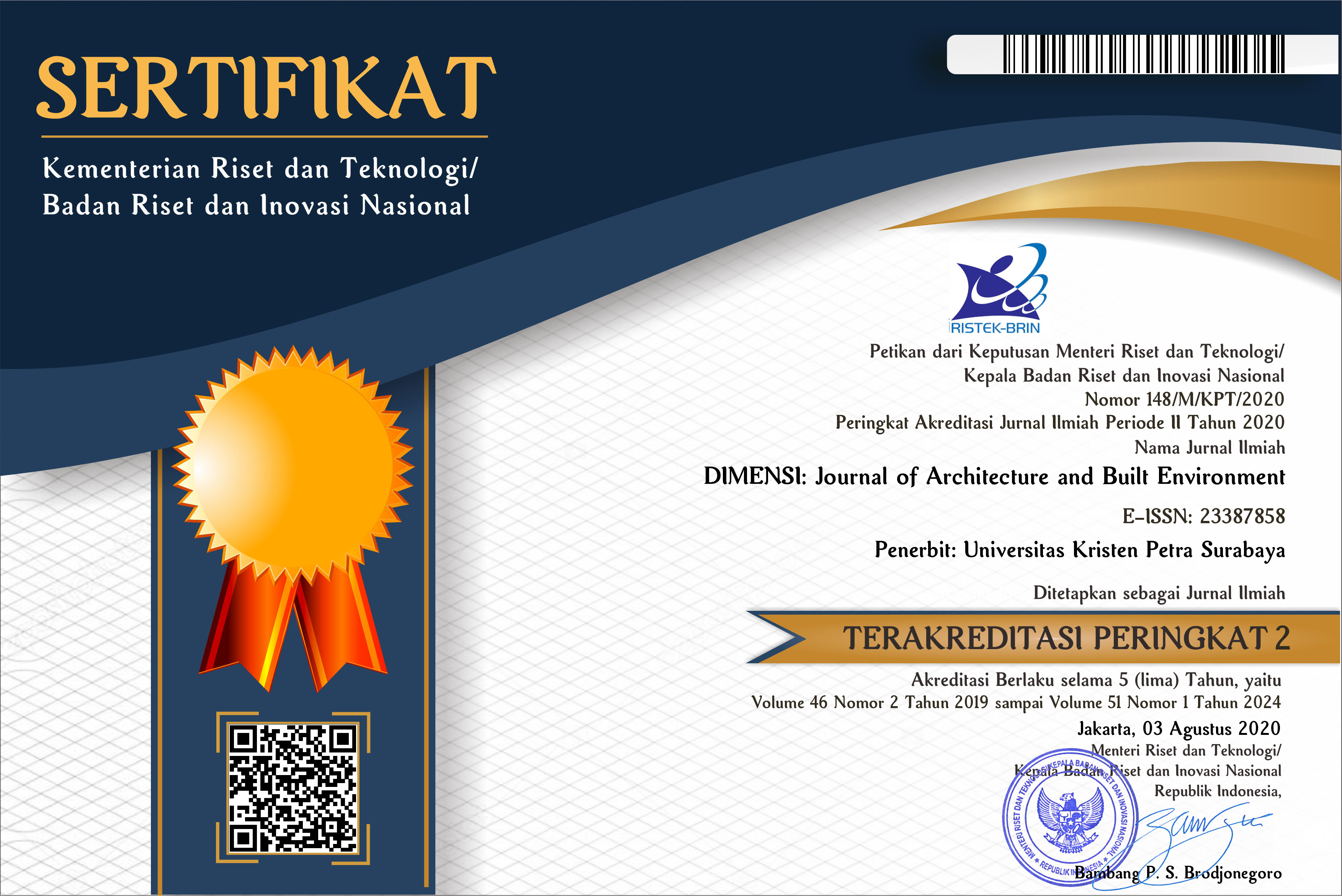THE “DUO”, BUILDING SETBACK AND LANDSCAPE QUALITY: LAUTECH (NIGERIA) NEIGHBOURHOOD EXAMINED
 :
:
https://doi.org/10.9744/dimensi.38.1.23-30
Keywords:
LAUTECH, setback, landscape, open spaces, residential neighbourhood.Abstract
The subjects, building setbacks and landscape quality, can be considered as “duo” in view of their interwoven relationships as major determinants of open space quality in residential neighbourhoods. In view of the numerous benefits and functions of residential open spaces, these were examined in LAUTECH neighbourhood. The purpose was to assess the compliance level of these land use and outdoor quality variables with the Nigerian planning regulations to guide future developments in these sprawling neighbourhoods. A total sample size of 150 buildings was selected from the study population using stratified method. Direct measurement and observation of these variables was carried out. Result of a descriptive statistical analysis of the data obtained shows that there is a general poor conformity of setbacks, width of access roads and nature of fence to planning standards. These negatively affect building massing and the non-standard open spaces left were poorly landscaped. There were correlations between building setbacks and landscape quality. The result informed recommendations on these subjects for neighbourhoods that abut institutional campuses in general.Downloads
Download data is not yet available.
Downloads
Published
2012-01-24
How to Cite
Adeniran, A. J., & Akinlabi, F. J. (2012). THE “DUO”, BUILDING SETBACK AND LANDSCAPE QUALITY: LAUTECH (NIGERIA) NEIGHBOURHOOD EXAMINED. DIMENSI (Journal of Architecture and Built Environment), 38(1), 23-30. https://doi.org/10.9744/dimensi.38.1.23-30
Issue
Section
Articles
License
Authors who publish with this journal agree to the following terms:
- Authors retain copyright and grant the journal right of first publication with the work simultaneously licensed under a Creative Commons Attribution License that allows others to share the work with an acknowledgement of the work's authorship and initial publication in this journal.
- Authors are able to enter into separate, additional contractual arrangements for the non-exclusive distribution of the journal's published version of the work (e.g., post it to an institutional repository or publish it in a book), with an acknowledgement of its initial publication in this journal.
- Authors are permitted and encouraged to post their work online (e.g., in institutional repositories or on their website) prior to and during the submission process, as it can lead to productive exchanges, as well as earlier and greater citation of published work (See The Effect of Open Access).


















